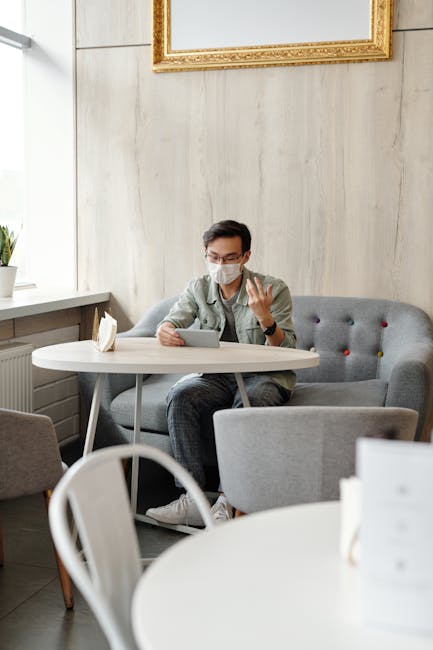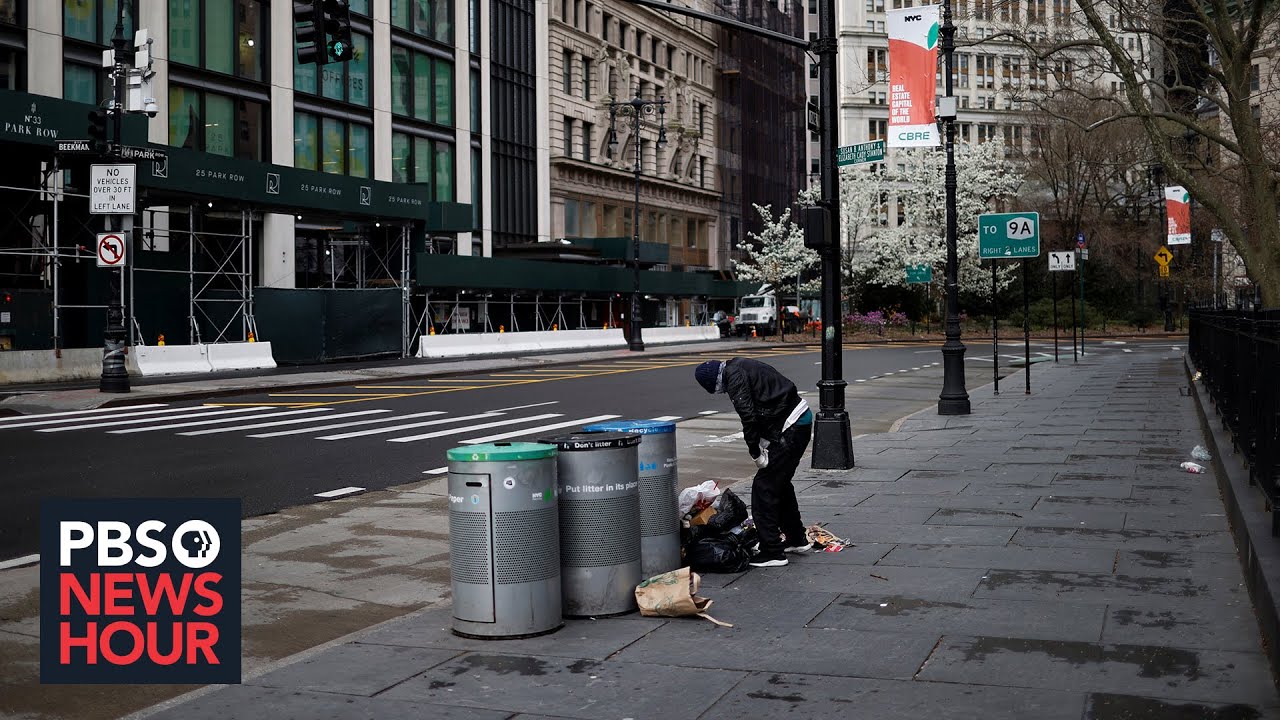Judy WOODRUFF, As many Americans do what they can to protect themselves and their communities from coronavirus, Stephanie Sy reports on how people experiencing homelessness are uniquely vulnerable and, what’s being done in some states to help them through the pandemic. Stephanie SY Until coronavirus came ashore. Homelessness was the biggest epidemic in many U.S. cities. Now one crisis is colliding with another JACKIE CISMOWKSI San Francisco, We’re supposed — people are supposed to stay in. I don’t see how that’s possible when there’s a lot of us around. You know LOUIS CHARLES BROWN, San Francisco. They need to open up a church and quarantine. Do something ma’am, because it’s going to get –, they say it’s going to get worse before it gets better.
And we –, I can’t take it, I don’t — and right now, I’m taking a chance with my life being out here like right now, STEPHANIE SY, It’s hard to follow. Safer-At-Home orders, when you don’t have a home Preventing the spread of COVID-19 among people living outside is particularly hard. Jeffrey Norris is the medical director of Father Joe’s Villages in San Diego, DR. JEFFREY NORRIS, Medical Director, Father Joe’s Villages. The biggest concern within an encampment is that if COVID-19 gets in there, you have very very few ways to mitigate the spread to slow down the spread of that virus And it’s likely to be spread to most people within an encampment in a very short period of Time, STEPHANIE SY Should the goal from a public health standpoint and for the health of those individuals in encampments, be to bring them inside. Should that be a priority right now, DR. JEFFREY NORRIS, I think it should definitely be a priority. I think getting them access to food bathrooms hand, hygiene in a way that’s reasonably safe physical, distancing, sufficiently spread out is absolutely essential.
If we don’t do that and COVID-19 gets into encampments, the risk of high death rates is substantial. Stephanie, SY, Crowded, shelters are also potential incubators of the virus and could accelerate the spread of COVID-19 In recent years. Infectious diseases such as hepatitis and typhus, spread rapidly in these communities and beyond, But people experiencing homelessness are more at risk than they are. A risk says Bobby Watts, CEO of the National Health Care for the Homeless Council BOBBY WATTS, CEO National Health Care for the Homeless Council, That is, public health and epidemiologist’s worst nightmare. They are more vulnerable because they have weaker immune systems due to the chronic stress of not having a stable place to live of not having good nutrition of having more underlying health conditions.
And they are in contact in congregate settings more frequently, So they are more vulnerable and they are more likely to be exposed. This is a serious public health problem and we have to treat it as such STEPHANIE SY Cities has addressed the problem to varying degrees In Las Vegas. A parking lot was set up in desperation to put up hundreds of people who were displaced when a local shelter had to close due to a single coronavirus case. The only nod to social distancing guidelines here painted boxes on the asphalt completely unenforceable. The temporary fix was widely criticized: Former Housing and Urban Development head Julian Castro tweeted “. There are 150,000 hotel rooms in Vegas going unused right now. .” In San Francisco R.V.s are part of the alternative housing strategy for quarantining patients. The state has leased them through June. Francis ZAMORA, San Francisco Department of Emergency Management, The intent of these vehicles are for people who have tested positive for COVID-19, do not require hospitalization and do not have a place where they can effectively be housed.

Stephanie SY And further south in San Diego city officials have converted a hall in the massive Convention Center into a 1,500-cot communal dwelling with access to other basic services, KEVIN FAULCONER, (, R, ), Mayor of San, Diego California, Meals showers, restrooms laundry services, ADA accessibility, Wi-Fi access And most importantly, health screening.s STEPHANIE SY, But ask many people experiencing homelessness, what they need and it sounds pretty simple: a room and a restroom of their own
Question, How can people support homeless individuals at this time, TIFFANY KEUNY San Diego, Give them a home JACKIE CISMOWKSI, Instead of putting everybody in just one room, maybe tiny homes, maybe because you know they’re cheaper to maintain and stuff like that, JAIME WRIGHT Phoenix. If there was an area or more spots available where we can find showers to be able to clean ourselves up, To be honest with you, the –, with the virus going around the biggest –, the biggest fear is not being able to clean up. If we can’t wash our hands, we’re exposing ourselves again, STEPHANIE SY With lockdowns grounding tourists and business travelers. Some states are procuring hotel rooms for those who are at high risk or have COVID-19 symptoms.
California, Governor Gavin Newsom, who has projected up to 60,000 homeless people, could contract the virus and overwhelm hospitals says the state is trying to secure 15,000 hotel rooms, GOV GAVIN NEWSOM, (D-CA). What we want to do is relieve the stress in our shelter system, so we can separate individuals and ultimately again relieve the impact in our medical care delivery system. Stephanie SY Boston is planning to allocate beds for the homeless in vacant dorm rooms and abandoned medical facilities. Norris says special attention should be given when transitioning people from a shelter environment to a private room, DR. JEFFREY NORRIS. The challenge with hotel rooms is that the number of staff and the amount of case management support to manage a large number of rooms like that is substantial. A lot of individuals who are coming out of a shelter setting into a hotel room require a lot of care, not just health care, but social services support.
Stephanie SY Providing more permanent housing and health care to all the half-a-million people experiencing homelessness in the U.S. at any given time is no easier now than it was before the pandemic BOBBY WATTS. This pandemic has exposed the structural inequities in our — and weaknesses in our health care and housing systems and policies. The same things that we are doing now to reduce the epidemic are the things that we should have always been doing, And they are the things that we should continue to do to prevent the next epidemic. Stephanie SY As COVID-19, continues to spread indiscriminately. It is revealing America’s extremes and many locales are urgently addressing the needs of their most vulnerable. Citizens Advocates only wishes it hadn’t taken a pandemic for them to do so. For the “PBS NewsHour,”, I’m Stephanie Sy in Phoenix..
